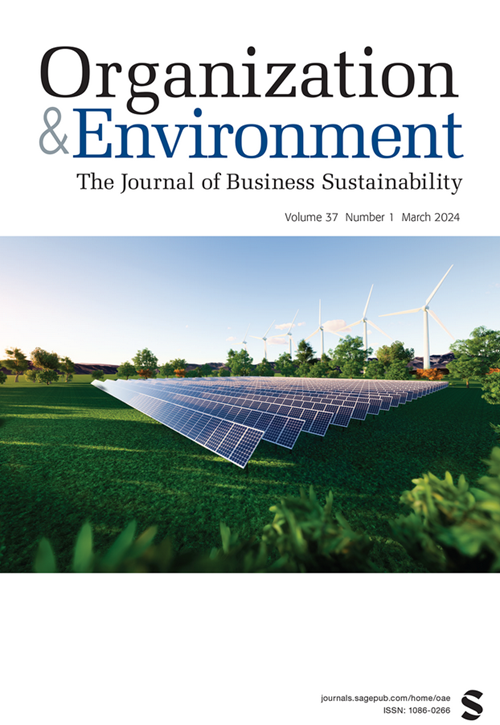Involuntary Disclosures and Stakeholder-Initiated Communication on Social Media
IF 7.3
4区 管理学
Q1 ENVIRONMENTAL STUDIES
引用次数: 5
Abstract
This study explores firm responses to stakeholder-initiated involuntary disclosures, which are disclosures made by stakeholders about an organization but are against the will of managers, and subsequent stakeholder reactions. We analyzed 134,977 firm Twitter replies from seven companies to identify their responses to involuntary corporate social responsibility (CSR) disclosures and find that companies demonstrate different attitudes toward engagement in the exchange about involuntary disclosures. Whereas some companies communicate with stakeholders, others are almost silent. When a company engages in communication with its stakeholders, the communication is mostly one-way, and mortification or dissent is the likely response strategy. We also find that while stakeholders generally do not continue to engage with corporate communications, they are likely to respond when companies deny the information revealed by involuntary disclosure. Our results suggest that involuntary disclosures on social media are not able to improve communication between stakeholders and companies.社会媒体上的非自愿披露和利益相关者发起的沟通
本研究探讨了企业对利益相关者发起的非自愿披露的反应,即利益相关者对组织的披露,但违背了管理者的意愿,以及随后的利益相关者反应。我们分析了来自7家公司的134,977条Twitter回复,以确定他们对非自愿企业社会责任(CSR)披露的回应,并发现公司对参与非自愿披露的交流表现出不同的态度。虽然有些公司与利益相关者沟通,但其他公司几乎是沉默的。当一家公司与其利益相关者进行沟通时,沟通大多是单向的,而羞辱或异议是可能的回应策略。我们还发现,虽然利益相关者通常不会继续参与企业沟通,但当公司否认非自愿披露所披露的信息时,他们可能会做出回应。我们的研究结果表明,社交媒体上的非自愿披露不能改善利益相关者与公司之间的沟通。
本文章由计算机程序翻译,如有差异,请以英文原文为准。
求助全文
约1分钟内获得全文
求助全文
来源期刊

Organization & Environment
Multiple-
CiteScore
11.20
自引率
5.70%
发文量
19
期刊介绍:
Organization & Environment encourages informed discussion about the social roots and consequences of environmental problems and stimulates deeper reflection on the meaning and significance of the natural world. By critically examining the impact of human production and consumption systems on the natural environment, Organization & Environment develops new perspectives on organizations that encourage environmentally sensitive reflection, inquiry, and practice.
 求助内容:
求助内容: 应助结果提醒方式:
应助结果提醒方式:


